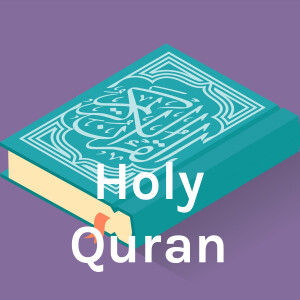
Saba’ (Arabic: سبأ, saba’; from the city called "Sheba") is the 34th chapter of the Qur'an with 54 verses. It discusses the lives of Solomon and David, a story about the people of Sheba, challenges and warnings against the disbelievers as well as the promises related to the Day of Judgment
Regarding the timing and contextual background of the believed revelation (asbāb al-nuzūl), it is an earlier "Meccan surah", which means it has been revealed in Mecca, instead of later in Medina
Ayat (verses)
- 1-2 Praise to the All-wise and Sovereign God
- 3 Unbelievers shall not escape the judgment-day
- 4-5 The reward of believers and the punishment of infidels sure
- 6 Certain Jews accept the Quran as the word of God
- 7 The Quraish scoff at the doctrine of the resurrection
- 8-9 Divine judgments threatened against the unbelievers
- 10-11 David received blessing and knowledge from God
- 12 Solomon received dominion over the winds and the genii
- 13 The palaces, statues of Solomon etc constructed by genii
- 14 Solomon’s death concealed from the genii
- 15-16 The people of Sabá rebel against God and are punished
- 19 They are dispersed on account of covetousness
- 20 All but a few believers follow Iblís
- 21 The idolaters worship imaginary deities
- 22 Only those who are permitted shall intercede on the judgment-day
- 23-26 The bountiful God will judge between true believers and the infidels
- 27 Muhammad sent to man as a warner
- 28-29 The infidels will feel God’s threatened punishment in the judgment-day
- 30-32 Mutual enmity of the idolaters and their leaders on the day of judgment
- 33 God’s prophets have always been opposed by the affluent
- 34-35 The Makkans boast in their riches in vain
- 36 The righteous only shall be saved
- 37 Muhammad’s adversaries shall be punished
- 38 The Lord will reward the almsgivers
- 39-40 The angels shall repudiate their worshippers
- 41 Idolaters shall be unable to help one another in the judgment
- 42 The unbelievers call Muhammad a forger of the Quran and blasphemer
More Episodes
Ta-Ha
 2020-11-21
2020-11-21
 2020-11-21
2020-11-21
Maryam
 2020-11-16
2020-11-16
 2020-11-16
2020-11-16
Al-Kahf الكهف
 2020-11-10
2020-11-10
 2020-11-10
2020-11-10
Al-Isra
 2020-10-29
2020-10-29
 2020-10-29
2020-10-29
An-Nahl
 2020-10-15
2020-10-15
 2020-10-15
2020-10-15
Al-Hijr
 2020-10-11
2020-10-11
 2020-10-11
2020-10-11
Ibrahim
 2020-10-07
2020-10-07
 2020-10-07
2020-10-07
Ar-Ra'd الرعد
 2020-10-04
2020-10-04
 2020-10-04
2020-10-04
Yusuf يُوسُف
 2020-10-03
2020-10-03
 2020-10-03
2020-10-03
Hud
 2020-09-29
2020-09-29
 2020-09-29
2020-09-29
Yunus
 2020-09-26
2020-09-26
 2020-09-26
2020-09-26
At-Tawbah ٱلتَّوْبَة
 2020-09-25
2020-09-25
 2020-09-25
2020-09-25
Al-Anfal ٱلْأَنْفَال
 2020-09-25
2020-09-25
 2020-09-25
2020-09-25
Al-A'raf
 2020-09-24
2020-09-24
 2020-09-24
2020-09-24
Al-An'am
 2020-09-24
2020-09-24
 2020-09-24
2020-09-24
Al-Ma'idah ٱلْمَائِدَة
 2020-09-24
2020-09-24
 2020-09-24
2020-09-24
An-Nisa النسآء
 2020-09-10
2020-09-10
 2020-09-10
2020-09-10
Al-Imran آل عِمْرَانَ
 2020-09-09
2020-09-09
 2020-09-09
2020-09-09
Al-Baqarah البقرة
 2020-09-09
2020-09-09
 2020-09-09
2020-09-09
Al-Fatiha الْفَاتِحَة
 2020-09-09
2020-09-09
 2020-09-09
2020-09-09
012345678910111213141516171819
Create your
podcast in
minutes
- Full-featured podcast site
- Unlimited storage and bandwidth
- Comprehensive podcast stats
- Distribute to Apple Podcasts, Spotify, and more
- Make money with your podcast
It is Free
- Privacy Policy
- Cookie Policy
- Terms of Use
- Consent Preferences
- Copyright © 2015-2024 Podbean.com






